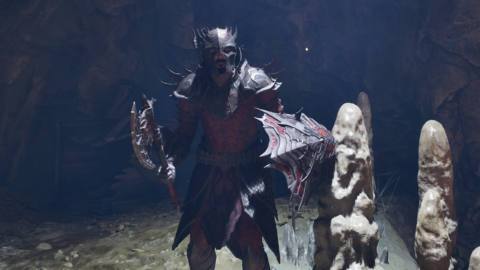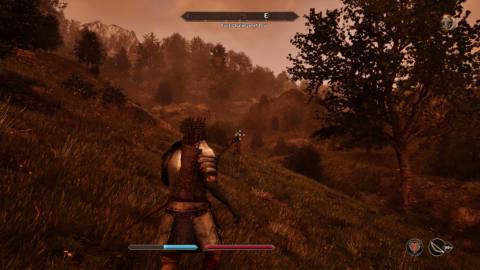We're finally back, baby! Dead Rising is a Capcom gem and a true original, but boy did the publisher fumble it after the original. Heavily inspired by George Romero's Dawn of the Dead, Dead Rising would be arguably the last masterpiece from Capcom production genius Keiji Inafune (it was released in 2006—Inafune worked on a variety of other projects subsequently, but left in 2010) and was a cutting-edge technological feat with that '80s/'90s arcade DNA running right through it: something old and something new, all at once.
Dead Rising is an open world game, in the limited sense of the open world being a shopping mall, and it operates like no other open world game you've played. It begins with a scene-setting flight into Willamette, during which you take control of protagonist Frank West, photojournalist extraordinaire, and start snapping the scenes on the streets. Even now it's an effective, albeit highly choreographed, introduction to a world where the zombie apocalypse is here but no-one is quite sure that's what it is yet. The most brilliant touch, as you take snap after snap and the rating system praises your work, is the poor souls on the ground trying to wave down the chopper as you capture their horrific last moments.
Once Frank's at the mall, after agreeing that the chopper will return three in-game days later, the first hour or so of Dead Rising is carefully guided. There's a non-optional opening where you meet a boatload of other survivors in the mall lobby, and are free to take your time chatting away to them and listening to incidental dialogue, before the zombies break through the mall's doors in a flood and, as you struggle to escape, the death notices pop up one-by-one. It's hard to overstate how effective this is: the slow build before the combination of a dozen videogame-y pings one after the other saying “SO-AND-SO HAS DIED!”
After this you're in the mall's security room, meet a pair of mysterious government spooks and get access to a save point, then you're off. You can do what you will within the parts of the mall you have access to (with shortcuts and new routes opening up as you explore), and are free to ignore any and all prompts, but most players will follow the opening quest and rescue their first survivors as well as assisting Brad (one of the feds). After this is where the structure blossoms.
You begin to juggle relatively freeform exploration with tips from Otis, a security guard watching on the cameras who'll tell you when he spots other survivors, in concert with pursuing the true story behind the outbreak. Everything is on the clock: when you find out about something happening, there's a limited time to investigate it before that opportunity is lost forever. Maybe you can do everything, especially at the start, but soon the tips pile up and choices have to be made: especially when you're trying to get someone who can barely walk back to safety.
Let's be Frank
That's the basic outline, but Dead Rising Deluxe Remaster is a strange old beast, and die-hards could almost take it as a tacit admission from Capcom that it never quite worked out how to improve on this structure. This remaster has all the fancy graphical swizz that Capcom can throw at it, but for better or worse still plays like the Xbox 360 game it is. All of the things I'm going to criticise about it are true of the original, and this only ever promised to be a remaster (as opposed to something like the ground-up remake of Resident Evil 4). But when Dead Rising gets it right, it gets it so right that you almost wish Capcom had been bolder in the many moments when it slips up.
The first unqualified success is Frank West. A middle-aged cynic with a widow's peak and an indefatigable focus on the story, later entries would dilute Frank's character to the degree he became a generic (and unforgivably handsome) bore. But here he is chasing the scoop and, to begin with at least, almost indifferent to the suffering he witnesses. The game leans into this, too, encouraging you to score great shots of the calamity unfolding, and showing Frank as someone who'll help out… if he gets something back.
But it's that heft that DRDR gets so right. Frank is a big man, and he's athletic and in decent shape, but he's not some spring chicken cartwheeling around zombie mobs. He's a brute. You positively bully individual zombies and, in the crowds, barrel through them like a dad who's just seen his kid fall over. This is not a simulation, of course, and the other side of it is the comedic animations as you explore the mall's vast array of items, almost all of which can be used as weapons, and start to see the exaggerated golf swings, wind-ups and hell-for-leather thwacks he can deliver.
Frank always felt to me like a slight corrective to that post-Resi 4 conveyor belt of L'Oreal super-soldiers who, in one of those industry ironies, was later subsumed into that same trend himself. But he's much more of an everyman character, not an entirely likeable one at times, and one of DRDR's absolute triumphs is that the real Frank West is back, as magnificently craggy and sarcastic as ever.
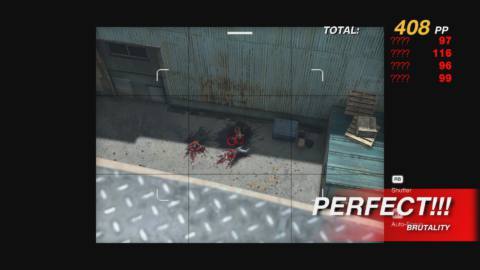
Five-finger discount!
The visual glow-up is the one area where DRDR is an unmitigated triumph. The Willamette Mall looks magnificent and, when you get on the higher levels and are looking down at the zombie masses stumbling about, it can be an almost hypnotic sight. Up-close the NPC faces are recognisably similar but so far ahead of the originals, while familiar locations now look like they always have in my head.
But the gorgeous new looks can rub up against the moment-to-moment play, which is positively old school. The combat in DRDR remains as simple as it ever did, which is to say that it's fun and rewarding cutting through the mobs but there's no particular depth. A hunting knife may be incredibly effective but you're using two slash animations while hammering the X button. The counterweight to this is that there's just so much stuff in the mall, all with their own bespoke animations and kinks, that you'll find it hard to get bored of the possibilities.
Frank's various offensive moves are a different story, and these become key to negotiating crowds: once you're sufficiently experienced (and levelled up), you can legitimately destroy mobs with Frank's bare hands. This is probably one of Dead Rising's strongest elements, and absolutely brutalising zombie after zombie with karate kicks, face-plants, and then going for a little crowd surf before dive-bombing back in… it feels exactly like the original, which is to say a fabulous time.
Unfortunately the same can't be said for the shooting, the first real black mark against DRDR. The shooting in Dead Rising was infamously bad, and one of those things you struggled through at the time because, well, you had to. DRDR lets you choose between two aiming modes at the start, I chose the updated version and it's barely an improvement. It's fine, I guess, and this isn't really a shooter anyway, but there are occasions when you really need to use the guns and when it comes to the boss fights… oof.
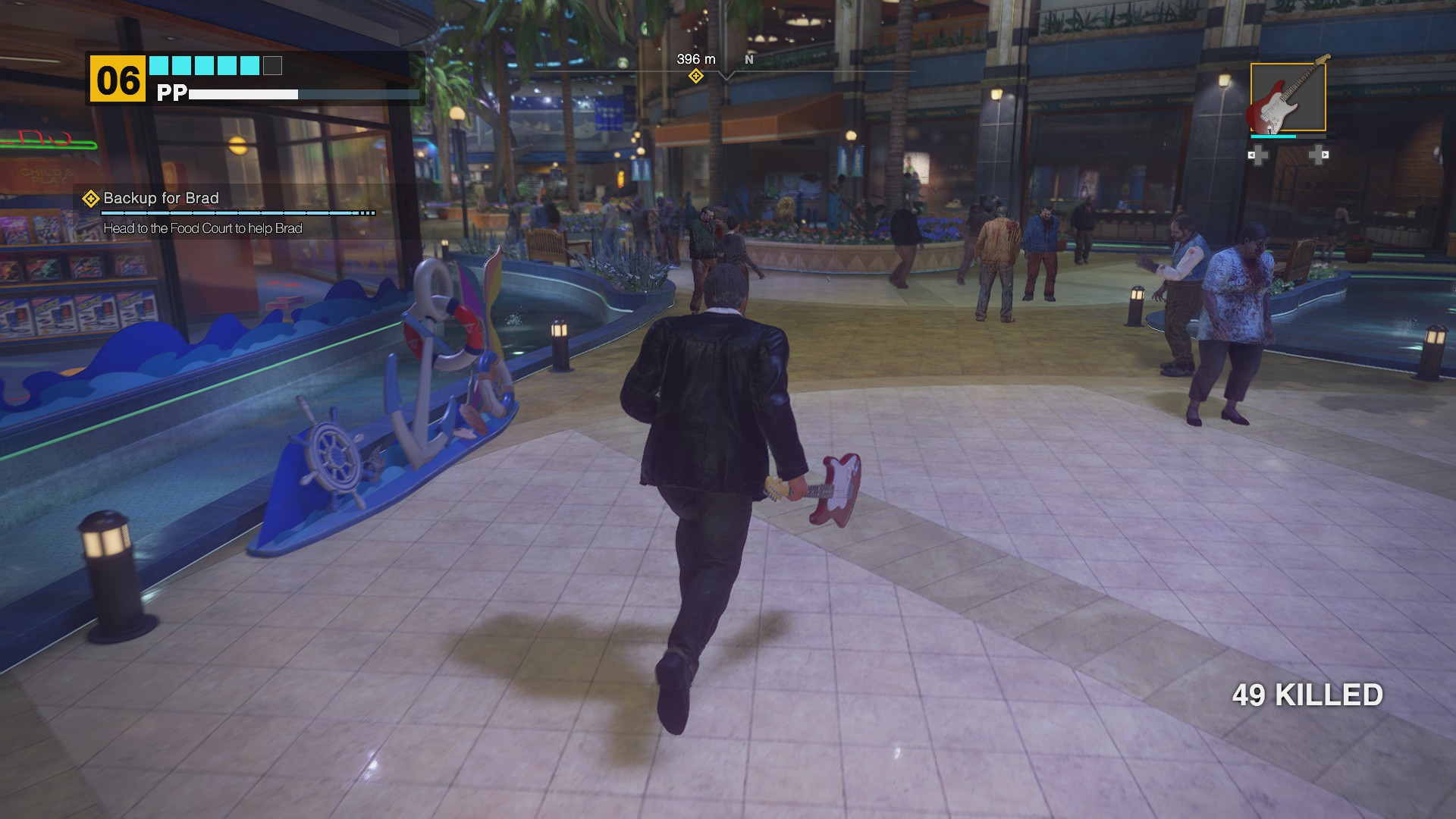
Bossically terrible
Dead Rising was always an uneven game, and one you had to meet halfway. Nowhere is this more true than the boss fights, the kind of thing that has you tossing pads at the wall because of the sheer injustice. The first one you'll face is in that Brad rescue mission and, honestly, it's still awful. One of those where the boss saunters about, dealing repeat damage with little flurries, while you unload a clip into his head and do 5% damage while he barely flinches.
Soon after this the garden in the middle of the mall is taken over by three convicts in a car, and the first time I saw them again I immediately took up position near a tree. Their vehicle smacked into it, I shot the driver in the head about six times doing barely any damage, and he reversed as the gunner shot me, shot me again after the recovery animation, shot me again etcetera until death. It's deeply frustrating, and exactly the kind of thing that could be vastly improved with a few parameter tweaks.
With a few exceptions Dead Rising's boss fights are terrible, and in 2024 they're even worse. This is the one area of the game where I really hoped that DRDR would be brave enough for a bit of a do-over in how they worked, but you still have to brute-force your way through them with assault rifles, chainsaws, and hunching behind cover gobbling baguettes. The more I played DRDR—and I know this is unfair—the more I wished Capcom had been a little bolder and addressed some of the original's most glaring flaws.
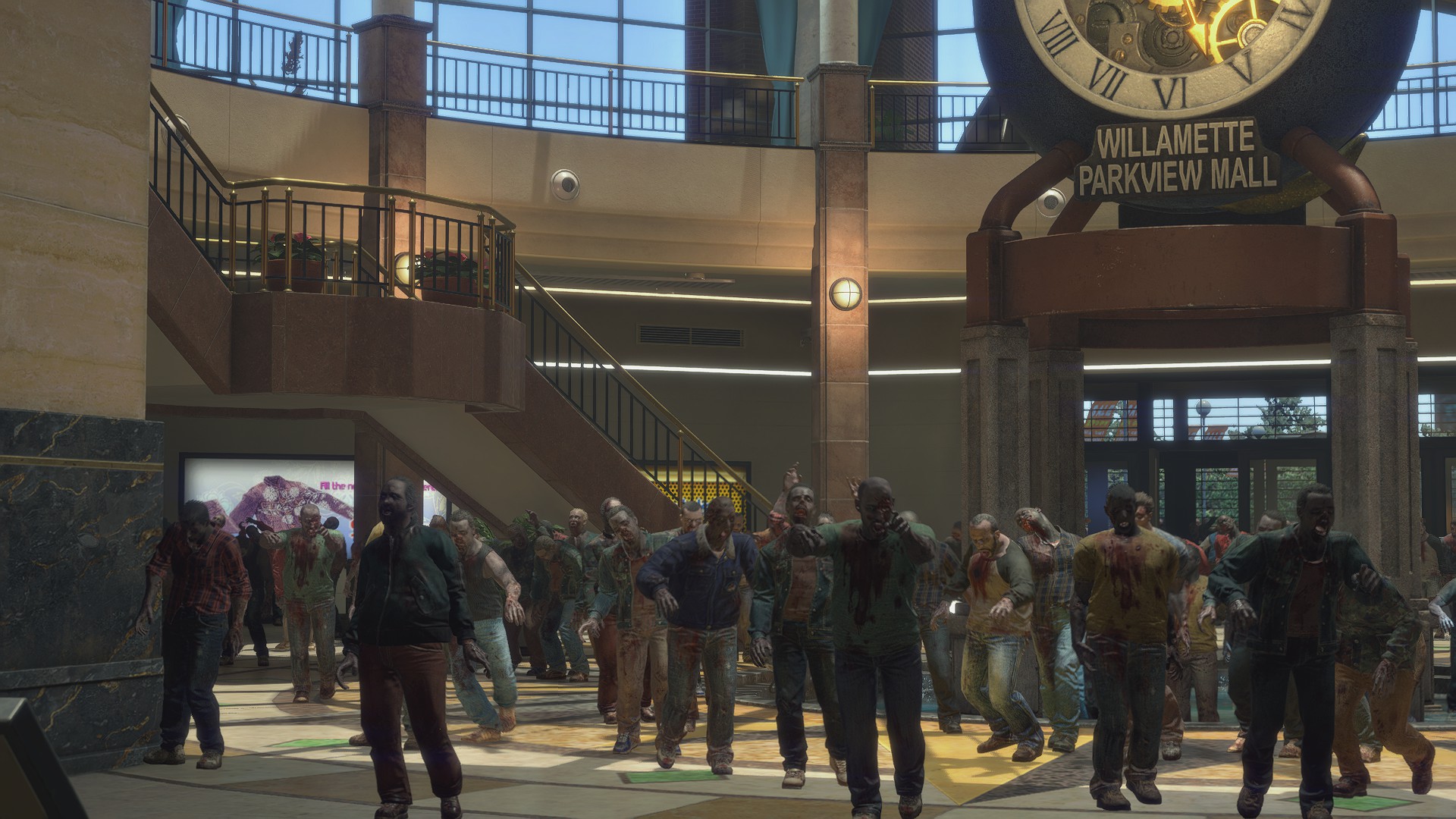
Left 4 Read
The boss fights are the most egregious example of something DRDR should have improved, but other small factors also prove irritating. The Willamette Mall has a load of bookshops, all of which have their own selection of power-up books that offer various buffs.
The issue is that you have to carry them around in an inventory slot to activate that buff, and inventory slots are extremely limited for the first few hours (as Frank levels up, more unlock to a maximum of 12 slots). Even when you have max inventory space, Dead Rising requires you to cycle through your inventory manually, so you end up with a bunch of weapons alongside books you have to skip through, and far too often end up in the middle of a crowd with Frank toting a book about melee weapons rather than using an actual melee weapon.
This is a system I remember with some fondness, because when you get into the metagame of Dead Rising and maximising Frank's efficiency on a given run, these books can be the cherry on top of a particular playstyle. My complaints about the bosses can be somewhat mitigated if you take the time to go around and stock up on weapon books, for example.
But it's all rather old school. There are two Japanese survivors that Frank is unable to rescue unless he first finds a book called “Japanese Conversation”. But you then have to keep this book in your inventory until you find them: and if you find them without it, and have to go looking, the clock's started ticking and they'll probably die before you return. Ditto skateboarding, where a book adds extra tricks and makes skateboards more durable, which feels like a must: again, you have to have it on you at all times.
This system feels archaic, busywork for busywork's sake, and another area where a remaster could have made bolder choices. In a game designed for multiple playthroughs, why not just let Frank memorise the books on a given run? Some of the buffs might need adjusting, and certainly the way they stack would, but the system as-is just feels like a bit of a pain. There ends up being something deflating about finding a great book when you beat a boss, and realising you have to permanently sacrifice an inventory slot to retain the benefits.
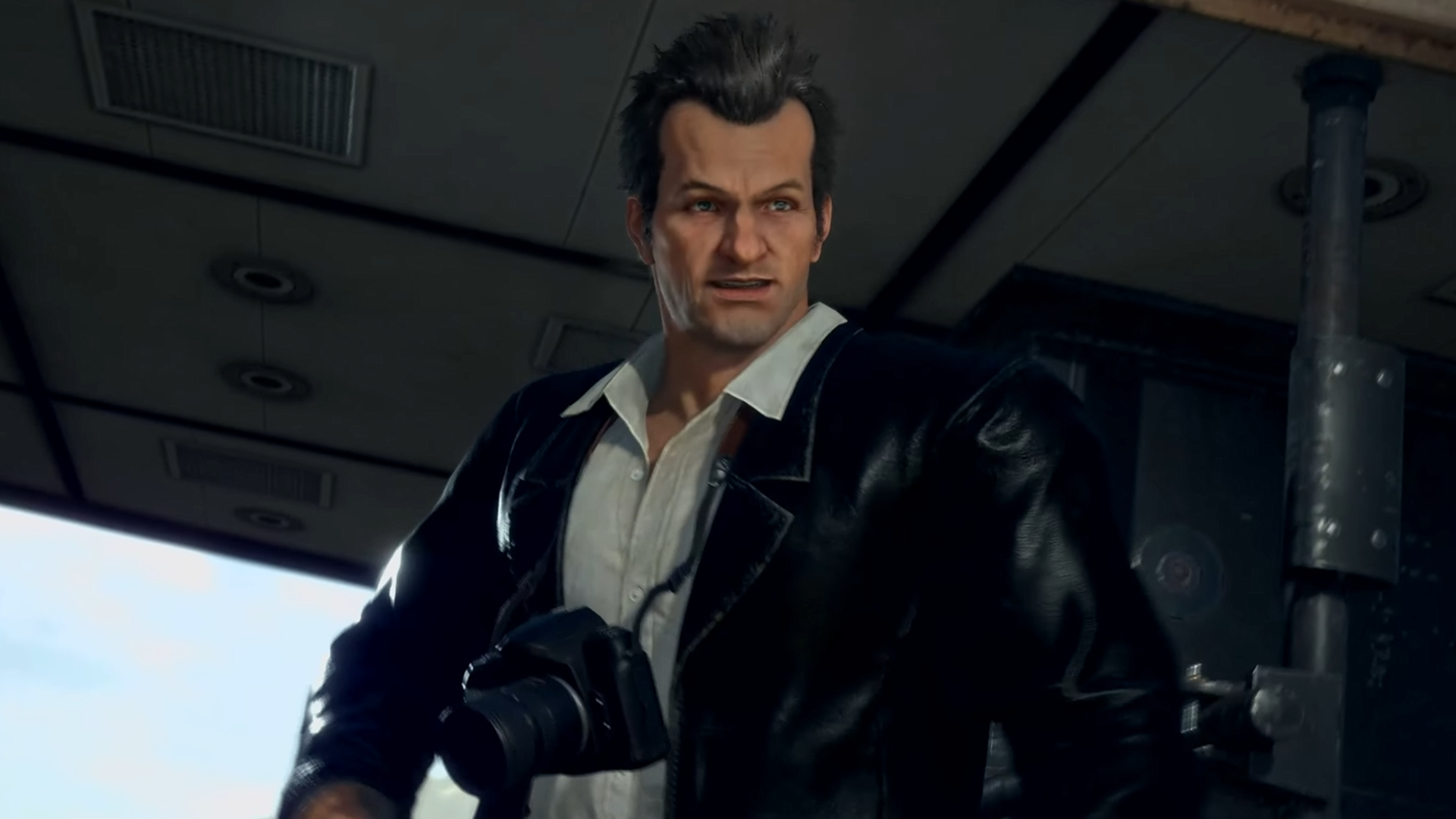
Time Crisis
With all the above said, I had a fantastic time in DRDR. For all the game's problems, there's never really been anything else like it. Bashing through the mall, grabbing survivors left and right, shanking zombie after zombie and stopping for a quick glug of orange juice really doesn't get old.
I'd forgotten just how many survivors you could gather at once: you can end up with a crew of eight following Frank around, each of whom you can arm with a weapon of your choice (and they have their own preferences and talents, too). Get the balance right and you can positively cut through the hordes, with Frank doing little more than leading the way. You can even feed your favourites and, with a little jiggery pokery, keep them around as you drop others off at the safe room.
It's in this moment-to-moment play that Dead Rising always shone, and DRDR does too. The stress and challenge of the timer is the magic touch that ties everything about the game together, as it increasingly comes to inform your choices and routes through the mall and, as things amp up, forces you to make difficult choices or try the near-impossible. At times you'll find yourself looking at the mall map and several waypoints, clicking your tongue and just puzzling out how on Earth you're going to do this.
The preview restrictions mean I can't talk about how the game ramps up after the initial three day period, but suffice to say that this is a faithful remaster and that, in the original game, what happens next really is the ace up Dead Rising's sleeve. Nothing in Willamette unfolds quite like you initially expect, and guiding Frank through what does happen is among Capcom's most magnificent achievements to this day: brutal, ingenious, and almost endlessly surprising.
All of my issues with DRDR are basically the same issues I had with the original game, and I don't know whether these flaws are what actually makes it work so well. In that light perhaps I should be grateful that Capcom hasn't sanded-off the rough edges, and has stayed truly faithful to the magnificent original. The “Deluxe Remaster” label maybe led me to expect more tweaks than this offers but, after immersing myself in it once more, the game remains as straight-up janky, weird and creative as ever. The game's store page describes DRDR as “a full graphical overhaul of the first game” so it's a little unfair of me to wish for more, and yet… it's done what it set out to do, but maybe that wasn't enough.
Like its protagonist Dead Rising is a game you grow to love, warts and all. Parts of it were always slightly broken but, at the same time, overall it (mostly) plays like a dream. I've been chasing the thrills Dead Rising gave me ever since I first fell in love with it, and so few subsequent titles have even come close to what it asks of the player, and what it delivers in return. Any new player will have to be prepared to make some allowances for Frank, and perhaps forget about some of the contemporary conveniences we take for granted. But if you can manage that, then this is the equivalent of a messy and drunken weekend with some of Capcom's finest minds: and who wouldn't want to be a part of that.




